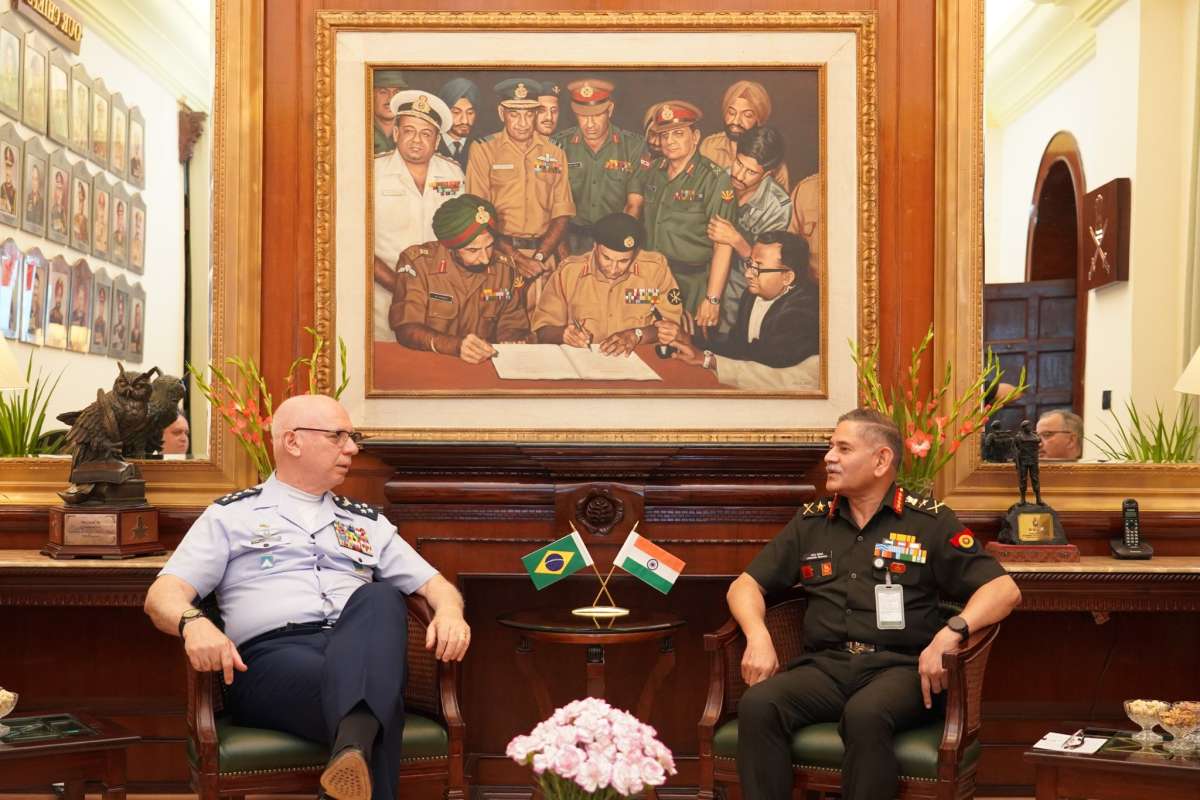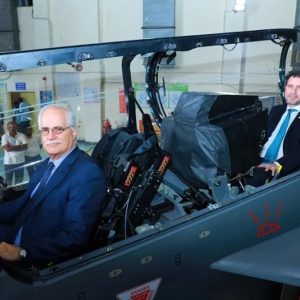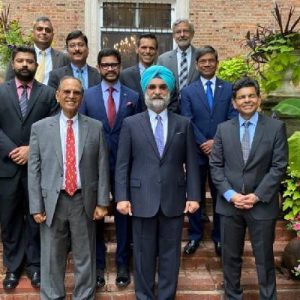Lieutenant Brigadier Marcelo Kanitz Damasceno, Commander of the Brazilian Air Force, called on India Army Chief General Upendra Dwivedi….reports Asian Lite News
The Brazilian Air Force Commander, Lieutenant Brigadier Marcelo Kanitz Damasceno, held a meeting with Chief of Army Staff General Upendra Dwivedi on Wednesday. The two officials discussed areas of mutual interest, including ways to strengthen bilateral defence cooperation.
In a post on X, the Indian Army’s Additional Directorate General of Public Information (ADGPI) stated, “Lieutenant Brigadier Marcelo Kanitz Damasceno, Commander of the Brazilian Air Force, called on India Army Chief General Upendra Dwivedi and discussed areas of mutual interest including avenues to enhance bilateral Defence Cooperation with Brazil.”
Earlier on Tuesday, Chief of the Naval Staff, Admiral Dinesh K Tripathi, met Commander of the Brazilian Air Force, Lieutenant Brigadier Marcelo Kanitz Damasceno and discussed aspects of bilateral defence cooperation and avenues to further enhance existing defence relations between the two countries.
Earlier in August, the Brazilian Navy Commander, Admiral Marcos Sampaio Olsen, was on a five-day official visit to India. The visit aimed to enhance maritime cooperation between the two countries.
During his visit, Admiral Olsen met with Admiral Dinesh K Tripathi. The meeting covered a range of topics, including operational engagements, technical cooperation, and training. Admiral Marcos Sampaio Olsen was honoured with a ceremonial Guard of Honour at South Block Lawns.
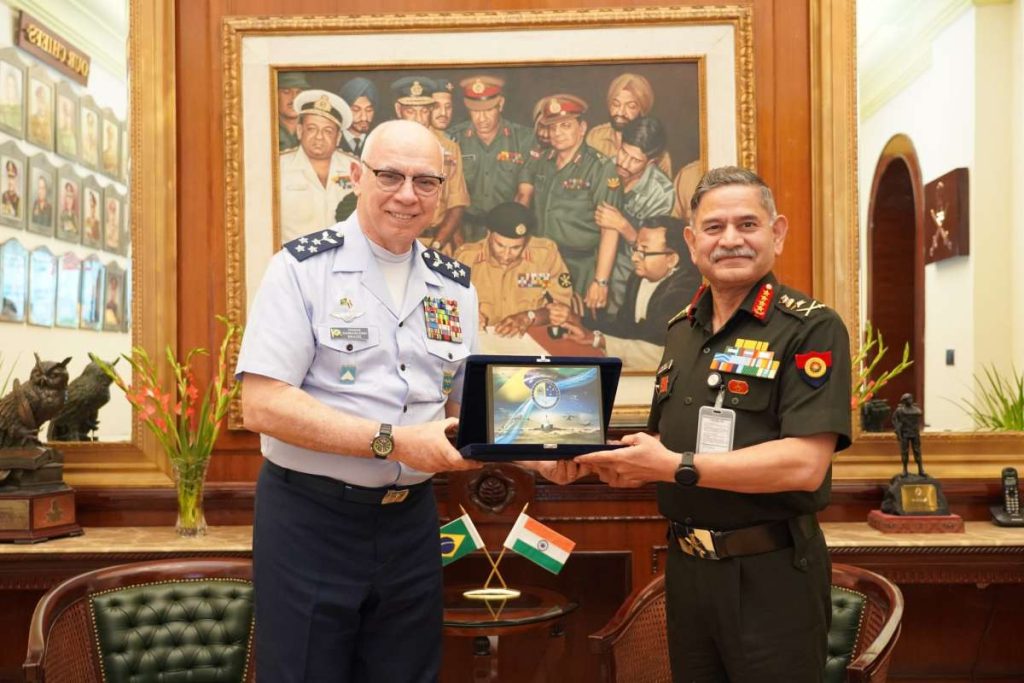
India and Brazil share a very close and multifaceted relationship both at bilateral level as well as in plurilateral fora such as BRICS, BASIC, G-20, G-4, IBSA, International Solar Alliance, as well as in the larger multilateral bodies such as the UN, WTO, UNESCO, and WIPO. The two
countries have been Strategic Partners since 2006.
India and Brazil signed an agreement in 2003 for cooperation in defence. Meetings of Joint Defence Committee (JDC) are held as an institutionalized mechanism for defence cooperation. Seven JDC meetings have taken place so far between the two sides. The 7th JDC meeting was held in Dec 2021 in New Delhi. Visits of several high level defence delegations have taken place in 2022 and 2023. (ANI)
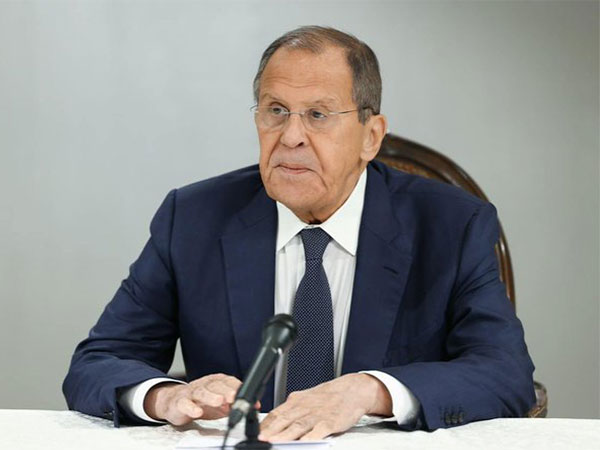
Lavrov praises approach of India and Brazil on Ukraine peace
Russian Foreign Minister Sergey Lavrov has said that Moscow has never considered the Ukrainian President Volodymyr Zelenskyy’s peace formula “seriously.” Lavrov stressed that the West’s insistence on sticking to Zelenskyy’s “peace formula” suggests that it does not want to make honest agreements.
Speaking to reporters following the 7th Russia-Gulf Cooperation Council (GCC) Ministerial Meeting for Strategic Dialogue in Riyadh on September 9, he noted that numerous ideas floating around the “Zelenskyy formula” begin with words that call for ending military operations and obeying international law and stressed that international law is not only about this.
He also praised the approach taken by counterparts from India and Brazil to facilitate the resolution of the ongoing conflict.
When asked about Russia’s stance on not holding talks with Ukraine following their attacks in Kursk region, Lavrov said, “With regard to the terrorist invasion to the Kursk Region by the Armed Forces of Ukraine and the continuing terrorist attacks on facilities in other border regions, including Belgorod, I would like to draw your attention to what President of Russia Vladimir Putin said at the Eastern Economic Forum on September 5, 2024, when he described the liberation of the Kursk Region and the entire territory of the Russian Federation, where Ukrainian neo-Nazis have gone on the rampage, as a sacred duty of the Russian Armed Forces.”
“As for various [peace] “initiatives,” one of these that has been put forward by Volodymyr Zelenskyy is well known and sets one’s teeth on edge. It is an ultimatum pure and simple. The fact that the West sticks to it means just one thing: they do not want to make honest agreements and seek to have Russia come closer to a situation, where they will be able to declare that we have suffered a “strategic defeat” on the battlefield. They want to weaken their rivals. So, we have never taken the “Zelensky formula” seriously and only marvelled that there are still people ready to buy it. Of course, this happens under the West’s pressure,” he added.
In 2022, Zelenskyy presented Ukraine’s 10-point peace formula to world leaders at the G20 Summit in Indonesia’s Bali. The 10-point peace formula includes a path to nuclear safety and food security, a special tribunal for alleged Russian war crimes and a final peace treaty with Moscow.
He said that Russia only wants people, who are “alienable part” of Russian language, culture, history and religion to be treated as human beings as required under international law.
Referring to German Chancellor Olaf Scholz’s recent call for talks, he said, “The German Chancellor, Olaf Scholz, said it was high time to start talking. The German press and other media are hinting that the territorial issue will have to be solved based on the realities existing on the ground. But, territories are neither here nor there. We just wanted the people, who are an inalienable part of the Russian world and the Russian culture, language, history, and religion, to be treated as human beings as required under international law, numerous conventions on human rights and minority rights, and primarily the UN Charter.”
Speaking about the numerous ideas floating around Zelenskyy formula, he said, “The numerous ideas floating around the “Zelenskyy formula” usually start with the words that it is necessary to stop military operations and obey international law, meaning steps to ensure Ukraine’s territorial integrity. International law is not only about this. Territorial integrity is guaranteed to states whose governments represent the entire population living in this or that territory.”
“This is a resolution passed unanimously by the UN General Assembly. There is no need even to argue that the neo-Nazis in Kiev represented no one in eastern Ukraine, Novorossiya, and Crimea after the [2014] coup. The main thing is that the UN Charter urges everyone to respect the rights of any person regardless of their race, sex, language, or religion. This is the root of the conflict in Ukraine,” he added.
He said that the rights of people adhering to Russian culture have been wiped out after the coup and Russian language has been outlawed in all spheres, including education, media, art, culture, and even everyday life. He further said that the Ukraine’s parliament, Rada, has approved a bill and Zelensky signed it into lawthat actually bans the Ukrainian Orthodox Church.
Speaking about the talks he held with his counterparts from India and Brazil, Russia’s top diplomat said, “Let me stress that none of the initiatives, including those put forward out of best intentions by our good colleagues and partners, address the rights of Russian speakers in areas that Zelensky regards as his own. Today, I discussed this topic with my counterparts from Brazil and India, because they display a certain concerned approach, one that we understand, to facilitating crisis resolution.”
“I drew their attention to the fact that this was the key problem. People were branded as terrorists solely because they refused to accept the coup and obey the coup-makers, who declared right away that their goal was to wipe out all things Russian and banish Russians from Crimea, among other areas,” he added.
Lavrov said that Russia appreciates the global security initiative announced by Chinese President Xi Jinping, which says that it is necessary to start analysing any conflict from its prime causes.
External Affairs Minister S Jaishankar and his Russian counterpart Sergey Lavrov held a meeting on the sidelines of GCC meeting in Saudi Arabia on Monday.
In a post on X, Jaishankar stated, “A useful conversation with FM Sergey Lavrov of Russia today on the sidelines of the GCC meeting.” (ANI)
ALSO READ: ‘We’re always here’: Garcetti highlights India-US friendship


